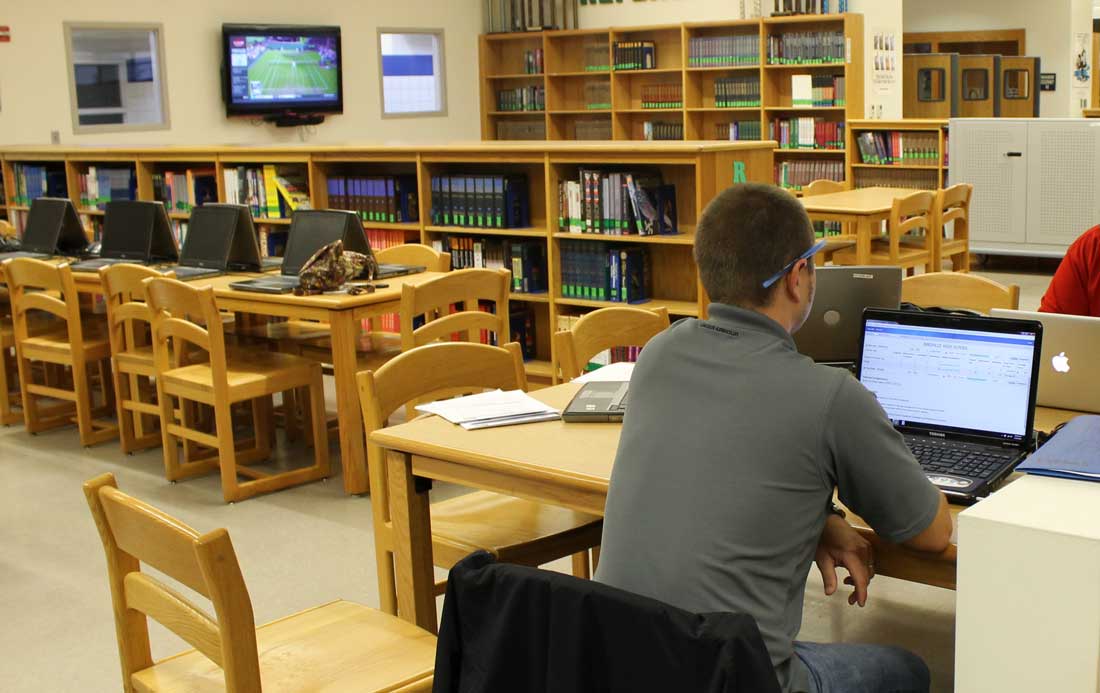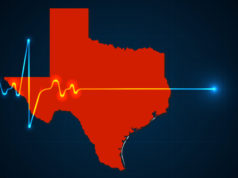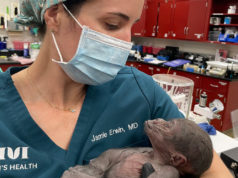Hundreds of students in the Birdville school district are enrolled in summer school — but not necessarily in school so much. Most kids aren’t spending more than two hours a day on campus.
This is the second year that high school and middle school students have been allowed to take courses online, working anywhere that has an internet connection.
Introduced in Birdville last summer, the Compass Learning program dramatically changed the summer school experience for both kids and teachers. The district’s three high schools also offer the online classes all year long for students to make up courses they failed. High school kids also have the opportunity to jump ahead and take classes like health and speech early.
In the fall, Birdville middle schools will extend the program for year-long use, primarily for students who need to retake the state-mandated STAAR end-of-course exams and to supplement classroom material.
Compass Learning is an online teaching software program used at more than 10,000 schools across the country. The program aims to create a personalized education based on a student’s academic strengths and weaknesses. Assignments are turned in electronically, and teachers monitor students’ progress via daily check-ins.
“The kids love it. They like the freedom to work with a computer and have a teacher that interacts with them through e-mail,” said Donna Solley, director of curriculum and instruction for Birdville. “The course is all about one-on-one [attention] when they need it.”
Richland High School in North Richland Hills is the district’s summer school hub. High school students can work from almost anywhere, including the computer labs, where teachers are on hand to help.
“They can work at home, but they have to check in [online] every day,” she said.
Self-discipline is just as important for teachers as it is for students. Teachers are required to check online work twice a day, Solley said. If students seems to be struggling, teachers are urged to call or e-mail quickly to find out the problem.
When the program started last summer, Solley said, communication was an issue. Some teachers had previous experience teaching online courses for colleges, but others found the transition difficult.
“They’re not standing up and delivering the instruction and then walking around the room watching the kids as they’re doing the work,” Solley said. In online classes, “they don’t see the student’s work until they turn in the activity. They don’t even know the kid is having an issue until they see the work.”
Arthur VanderVeen, vice president of business and development strategy for Compass Learning, said Birdville has spent a lot of time training teachers on the importance of staying connected.
“You can’t just leave them alone on the computer” without regular check-ins, he said.
Last summer, middle school students were allowed the same freedom as the older kids, but Solley said the students weren’t disciplined enough to work on their own. Now, middle school students have to work in classroom computer labs for two hours every morning.
“They didn’t realize that we really meant it when we said you have to work hard on this,” she said. “You probably have to commit three to four hours a day on it because you’re compacting a semester of work into about five weeks of school. That doesn’t resonate with a 12-year-old.”
Jared Steyer, a junior at Birdville High School, said he had trouble finishing his online work on time last summer. This year his mom makes him do his biology and English assignments in the library’s computer lab.
Jacob Gabbert, a junior at Trinity Christian Academy, also does his chemistry and algebra homework on campus at the request of his grandparents. Gabbert said he doesn’t get as distracted in the lab as he does at home.
Steyer and Gabbert agreed that online classes are better for them than traditional classes. They can work at their own pace, and the way the content is delivered makes it easier to understand. Video lessons depict an instructor explaining a concept, like a math equation, which is animated and played out behind him or her.
Gabbert said the animation seems childish to him, and instructors’ voices often sound strange. They also go into excessive detail explaining concepts and lessons, he said.
“It’s almost annoying, but it explains it really well,” Gabbert said. Still, “I’d rather it be that than sitting in a classroom for eight hours straight.”
Online course material is the same as in the traditional classrooms. Solley said Birdville content coordinators write the online lessons to match those being taught in school, using the same district-wide curriculum standards.
School districts have the option to use Compass Learning’s standard software, but Solley said Birdville prefers to customize it.
“What we liked about Compass is that we can take their course and make it match our traditional courses,” she said.
Colby Blankenship teaches physics and chemistry courses online and monitors the computer labs. He said the kids take a test before starting classes. The program uses those results to assess what material the students can skip and what material they will struggle with.
The speed of the curriculum is a benefit to high school students who need to make up a large amount of work in a short period of time, allowing some to graduate who otherwise wouldn’t. To register for online courses, students first must meet with their counselors, who keep track of each student’s graduation plan. Each online class costs $150, about the same as a traditional summer class.
Kids in disciplinary classes or who are homebound because of illness or injury are also candidates for Compass courses during the school year. For example, if a student is in a car accident and has to miss weeks in school, he or she can take the online courses and keep from falling behind, Solley said.
Parents are strongly encouraged to log in to their child’s Compass Learning account to check grades and homework. Solley said feedback from parents has been a “mixed bag.” At first, many parents did not understand the importance of logging in to check their children’s work. They were surprised at the end of last summer to see low grades.
“This year we were very clear with parents,” Solley said.
She’s also gotten responses from parents who said the flexibility worked well with their families. Kids who are away from home for the summer can still complete their coursework.
Blankenship used to teach traditional summer school. He said the flexibility is a significant improvement. Before, students had to show up for school every day from 8 a.m. to noon and were dropped from the course after more than one absence. Now students and teachers can work on their own schedules.
Ross Nelson teaches online biology courses and works as a lab monitor. He is also working on a master’s degree through an online program. Nelson feels that society is shifting toward online education and that students are benefitting from their early exposure.
“These are good skills for these kids to have,” he said. “It shifts responsibilities onto the kiddos.”












